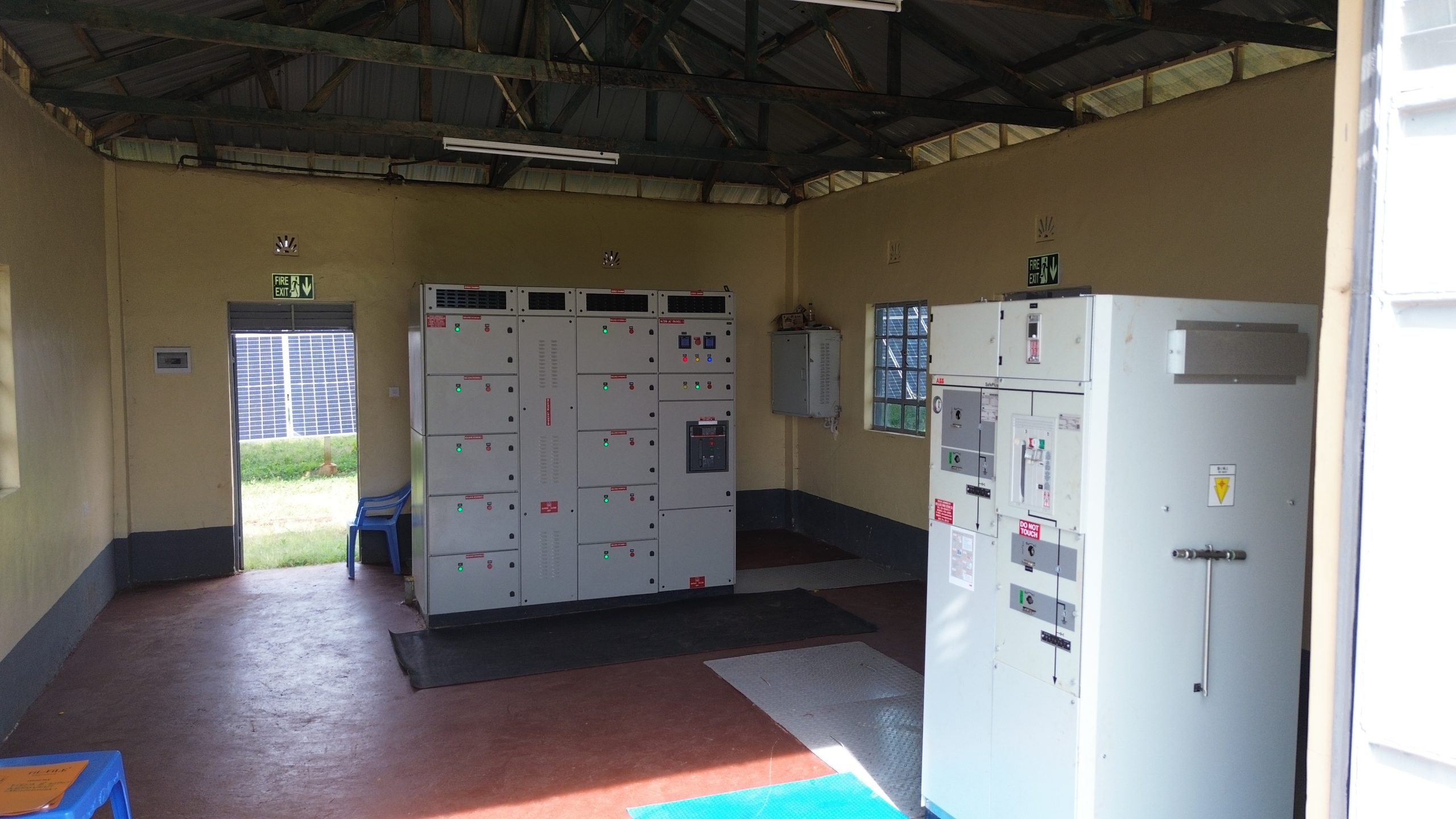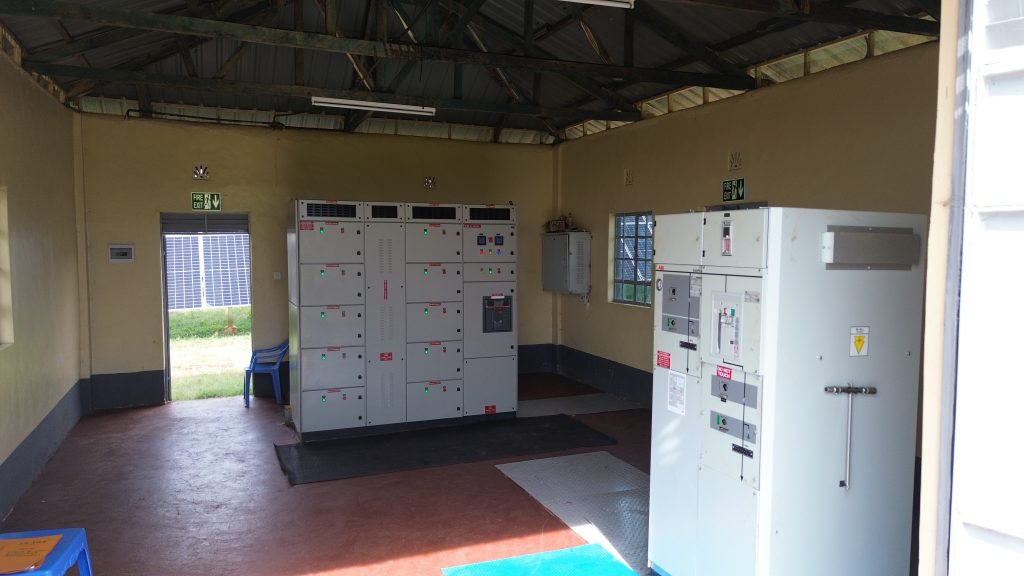
07 Jul The Ultimate Guide to Profitable Solar Energy for Businesses
Switching to solar power isn’t just about going green anymore, it’s a solid business strategy. For businesses battling high energy costs and unpredictable utility rates, solar energy offers a powerful solution that drives profitability and long-term resilience. In this guide, we’ll walk you through how to make solar energy work for your business, profitably.
Whether you’re running a factory, a large commercial building, or a small manufacturing unit, solar power can transform your bottom line.

Why Solar Energy Makes Business Sense
Electricity costs are often one of the largest recurring expenses for businesses. As rates rise, this can erode profits. Solar energy helps you take control. By generating your own electricity, you’re no longer at the mercy of the grid or rising tariffs.
For instance, a business with a solar system sized to meet 60–80% of its power needs can save up to 40% on its monthly electricity bill. Over a 25-year lifespan, those savings can translate into hundreds of thousands of dollars.
Solar power is no longer a “nice to have”, it’s a smart investment.
The Economics Behind Profitable Solar Energy for Businesses
Let’s break down the financials.
The average commercial solar installation costs between $600 to $1,000 per kW depending on size and region. While that may seem like a hefty upfront cost, the return on investment is clear. Most systems pay for themselves within 3–5 years. After that, you’re generating essentially free electricity.
With government incentives, depreciation benefits, and zero fuel costs, the economics become even more attractive. Add in financing options, and many businesses now go solar without any upfront capital.
Tax Incentives and Policy Support
Many governments offer tax breaks and incentives to businesses that invest in renewable energy. These may include:
- Investment Tax Credits (ITC) that cover a percentage of installation costs
- Accelerated depreciation options to help recoup capital quicker
- Net metering policies that allow you to sell excess energy back to the grid
These benefits boost the profitability of solar energy dramatically.
How Solar Power Improves Business Operations
It’s not just about savings. Going solar also brings operational advantages.
- Stabilized Energy Costs: Solar locks in your electricity costs for years.
- Lower Operating Expenses: Every dollar saved on energy can be reallocated to core business activities.
- Backup Power: Pairing solar with battery storage offers protection from outages, a crucial benefit in regions with unstable grids.
- Brand Perception: Sustainability is a selling point. Consumers and partners respect businesses that prioritize the environment.
What to Consider Before Installing Solar
To ensure your investment in solar energy is profitable, consider the following:
- Roof Space or Ground Space: Do you have enough usable space for panels?
- Daily Energy Demand: Understand your peak and off-peak usage.
- Grid Reliability: In some areas, off-grid or hybrid systems are more beneficial.
- Financing Options: Leasing, loans, or power purchase agreements can ease cash flow concerns.
Working with an experienced solar partner helps you navigate these factors easily.
A Look at Spenomatic Solar: Our Solar Journey
At Spenomatic Solar, we’ve seen firsthand how solar can transform businesses. As an industrial player ourselves, we understand the importance of profitability, efficiency, and reliability. That’s why we took the leap and invested in solar for our own operations.
The results? Remarkable cost reductions and the ability to run critical equipment with clean, reliable power.
We’ve since helped hundreds of businesses do the same, engineering solar systems that match unique operational needs and maximize returns. For us, it’s more than a service. It’s about enabling sustainable industrial growth in Africa and beyond.
How to Start Your Solar Journey Profitably
- Energy Audit: Assess your current consumption to determine what system size you need.
- Feasibility Study: Analyze location, shading, structure, and load profiles.
- Partner Selection: Choose a provider with a strong track record in commercial and industrial systems.
- Financing Plan: Decide between outright purchase or zero-upfront options.
- Monitoring System: Ensure real-time monitoring is part of the package for performance tracking.
Long-Term Profitability: More Than Just Energy Savings
Solar energy does more than cut your bill today, it positions your business for long-term success:
- Protection against inflation in electricity rates
- Improved asset value as properties with solar are more attractive
- Reduced carbon footprint, aligning with global ESG goals
As sustainability reporting becomes a requirement for large companies, early adoption offers a compliance advantage.
Conclusion
Solar energy is no longer experimental, it’s essential. For businesses looking to maximize profits while minimizing risk and waste, solar offers a clear path forward. With the right planning and the right partner, your business can unlock decades of clean, stable, and profitable energy.
At Spenomatic Solar, we’re proud to be part of this energy transformation. We’ve helped businesses across Africa save millions in power costs, while advancing their sustainability goals. When you’re ready, we’ll be here to help you do the same.
Frequently Asked Questions
1. How much can my business save by switching to solar energy?
Savings vary based on system size and usage, but many businesses reduce their bills by 30–50%.
2. Is solar energy reliable for large industrial operations?
Yes. When properly designed, solar systems can power large equipment, and adding battery backup ensures reliability.
3. What’s the average ROI on a commercial solar system?
Most systems achieve ROI within 3–5 years, with 20+ years of profit afterward.
4. Can I go solar without paying upfront?
Yes. Options like leasing and PPAs (Power Purchase Agreements) let you go solar with little or no upfront capital.
5. Does Spenomatic only serve industrial clients?
While we specialize in industrial and commercial projects, we assess each client individually to deliver the best solution.


Sorry, the comment form is closed at this time.